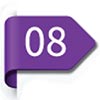
Regardless of where you are in your career, the interview process is extremely important. While a lot of colleges offer a career center or similar services to help you organize your resume, there is no blueprint for how to interview for a college strength and conditioning position. In this article, I list ten ways to navigate the interview process professionally and provide examples from my experiences with phone and in-person interviews that will you help you stand out from the pack.

Know What Position You Applied For & Who You Are Talking To
I completely understand and respect that young coaches are applying for 10, 20, or even 30 jobs at a time when trying to land an opportunity. That, however, is not an excuse to avoid doing your homework when you land a phone interview. Without fail, two of the interview questions will be: What do you know about this school, and why are you interested in coming here? I’m always impressed with someone who digs into our athletics mission and vision or did some research on the teams and their success, and I’m equally unimpressed when I get a generic or lazy response.
Here are some recent examples that I’ve heard during phone interviews: “To be completely honest with you, coach, I don’t even know where the school is. Where is it again?” “I have applied to so many jobs, it’s hard for me to keep track.” These can disqualify you immediately. You do not need to recite word for word the department philosophy and the head strength coach’s bio, but try to educate yourself on the school if you want to give yourself a chance.
Research the sport programs' current records, the school location, and conference they compete in, says @GreeneStrength. Share on XTip: Research things like the current records of the sport programs, the school location, and the conference they compete in. Also do a Google search to see if the school has received any national attention. It will take you no more than 10-20 minutes and will give you the information necessary to ask the right questions and come off prepared for the interview.

Answer the Phone When Your Time is Scheduled
Answering the phone is the easiest part of the interview, yet some still struggle to do this. I’ve had one candidate ignore the call, then text and say, “can we talk in 20 minutes?” I had another forget the time zone difference when I specified it in the email. Again, this can be an immediate disqualification. If you can’t stick to the time and be punctual for a phone meeting, how can I trust you to do so in the weight room? Keep in mind, coaches may be interviewing 10-20 candidates so it’s easy to eliminate a person if they can’t keep to their time.
Tip: Treat the phone interview as if you were doing an in-person interview. Throw on a suit and take the phone call in a quiet place where you can concentrate. Leave notes out and have a pen and pad ready so you can write down important information. Most importantly, be ready 15 minutes before the interview starts, turn your phone on, and be prepared for the phone call.

Avoid Swearing
It is always a turn off to me when a candidate starts to swear, whether in-person or on the phone. In an interview, you need to act like a professional. If you swear in one of our first conversations, I’ll believe you might do the same in front of a coach or administrator.
Tip: Treat an interview the same way you would if you were meeting your girlfriend’s or boyfriend’s parents for the first time. Even if you felt comfortable in the first 10-15 minutes, you probably wouldn’t start dropping F-bombs at the dinner table. Be sharp.

Have Questions Ready
Having questions ready shows that you did your homework and are interested in learning more about the school, program, and philosophy. Although some of your questions might get answered during the flow of the discussion,spend the time and ask well-thought-out questions that separate you from other candidates.
Questions about the school, program, and philosophy will separate you from other candidates, says @GreeneStrength. Share on XTip: Ask questions that show you did your homework. For example, if you see in the bio that the coach running the interview started as a GA and worked their way up to the head position at the same school, ask what their journey was like and how the program has grown during that time. Questions like this will set you apart.

Have a Strategy for When to Ask About Pay
If the first question you ask during a phone or in-person interview is “how much does the position pay?” you run the risk of rubbing the hiring committee the wrong way. This occurs in other professions as well, and it sends the wrong message. If it is a phone interview or in the early stages, your focus should be on learning more about the university and the athletic department; the payment details will come later if you’re fortunate enough to move forward in the process.
Tip: Generally, compensation does not come up during the interview process until you receive an offer. Be patient and research comparable positions and the cost of living in the area so you can professionally and confidently negotiate the salary when you receive an offer.

Dress the Part; When in Doubt, Overdress
Everyone talks about making a great first impression. The first opportunity you’ll have to do so is when you walk into the room for your interview. Whether you’re applying for an internship, GA position, assistant, or director role, dress as if you’re attempting to land your dream job.
Dress well and bring along workout clothes in case you're asked to demonstrate exercises, says @GreeneStrength. Share on XTip: Bring a pair of sneakers, shorts, and a t-shirt in a bag. On some interviews, the committee may ask you to demonstrate exercises or invite you to join the staff for a workout, which is a fantastic way to get to know the staff. On one interview I was asked to lead a group on the fly from start to finish, so be prepared for anything.

Do Not Lie on Your Resume
Everyone makes themselves sound a little better on their resumes—I get that. Outright lying, however, will expose you and eliminate you not only from the job you’re applying for, but also for future positions with anyone in that particular coach’s network.
I had a GA candidate list a school as their current job on their resume and went into specific detail on the phone about their experience there, even going so far as to tell me a specific story to make a point about a question I had asked. Little did this candidate know that I had a contact at the school in question, and I immediately picked up the phone to follow up for more information. Come to find out, this candidate had never stepped foot on the campus and was scheduled to start employment there a few weeks later.
I had another candidate take it upon themselves to change their title on their resume. They listed they were the assistant director of strength and conditioning when they were a graduate assistant per their supervisor. Assume the place you are applying is going to call everyone you’ve ever worked for or with during your career—because they will!
Tip: Plain and simple—be honest. Coaches who are hiring across the country are looking for intangibles: hardworking, motivated, and hungry individuals who are passionate and care about the athletes they work with and the job that they do. A slight title adjustment to spice up your internship experience isn’t going to land you the job, but it can prevent you from getting it if the coach does their homework.
Focus your attention on making a huge impact wherever you are, and the staff you work with will go above and beyond to help you. If I have an intern or GA that does a great job for us, I will do everything in my power to help them land their next opportunity. A strong recommendation from your boss or sport coaches is 100 times more valuable than words on a piece of paper.

Come Prepared for Your On-Campus Interview
Find the facility. The opportunity to land an on-campus interview is special. Hundreds and hundreds of resumes are read, and 20-30 phone calls are made before an on-campus interview takes place. Whether you get the job or not, you have a tremendous opportunity to leave a lasting impression. The first step toward making a great first impression is finding the facility!
You’ll likely receive directions to the location—however, most weight rooms on campus don’t come with an address you can throw into the GPS. The last thing you want to do is call the hiring manager while you circle campus trying to find the building. Drive to campus the day before if possible and take your time navigating around so you can find the correct building and avoid any chaos the morning of your visit.
Give a Good Handshake. Another important factor when trying to make a good first impression is how you shake hands. Do not give the “wet noodle” handshake and stare at the floor. Make eye contact and give a firm handshake.
Address the Committee Appropriately. Remembering names is also important during the interview process. Before the interview, look at the agenda for the day and put a face to the names of the people you will meet by reviewing the staff directory on the school’s website. Sometimes you’ll be introduced to someone quickly in the morning before a more formal sit-down with that same person in the afternoon. Keep in mind, this is an interview. If you’re dealing with coaches, always refer to them as “Coach____” and call administrators “Mr._____” or “Ms.____.” Unless someone insists you call them by their first name, stick to these guidelines.
Tailor to the School. Tailor your programs to the school and its sports. I find many people do a nice job of preparing packets or booklets for committee members on the hiring process, and it helps separate you from those who do not. However, take the time to add in the school’s current logos and colors.
When we host candidates for on-campus interviews, I’ll ask them to provide sample programs, and many bring copies of their current school’s programs without adjusting for our school. Additionally, write your sample programs with the sports you might be working with or the coaches that might be on the committee in mind.
For example, if the soccer coach, softball coach, and hockey coach are all on the committee, it would be wise to provide a sample program for each. Something simple like a 4-week off-season plan for soccer, a 4-week in-season plan for softball, and a 4-week speed program for hockey will cover your bases and allow the coaches to see that you can adjust your program based on the demands of the sport and account for different times of the year.

Follow-Ups
Follow-ups go hand-in-hand with first impressions, but they deserve their own section. I have not met another coach or administrator who does not value a follow-up note or an email. Whether it’s a phone call or in-person interview, take a few minutes to follow up with the people you met or spoke with.
I have not met a coach or administrator who does not value a follow-up note or email, says @GreeneStrength. Share on XI also find the timing is important. It’s best to follow-up the night of the interview or the following day, as you don’t want to wait too long. I also recommend sending a thank you note in the mail to the person running the search and possibly their supervisor in addition to the email (i.e., the head strength coach and the athletic director). It could take a few business days, and a lot of schools have an old-school mail room so it may be even longer. Therefore, the email is critical to send ASAP. Another thing to keep in mind is to personalize each email. Below is an example:
Dear Mr. G,
I want to thank you for taking the time out of your day to meet with me and talk to me about the position at _____ University. It was great to meet you and hear your perspective after 17 years at ________ University. I really enjoyed learning about your mission to transform the life of each student-athlete and your plans to build a brand new indoor facility. It would be an honor to join your team, and I appreciate you considering me for this position. I look forward to hearing from you soon.
Sincerely,
___________
It’s concise and highlights 1-2 things that you spoke about in the interview. Keep in mind many of these people share office space and will talk about the follow-up note you sent to them. If it is a “copy and paste” message sent to each person, it will carry less weight.

You Are Always On an Interview
Whenever I go to a conference or clinic, I make it a point to talk to as many young coaches as possible. When I meet someone who impresses me, I make a note, and when I have a position open or someone in my network does, I may contact them. At the same time, I make a note of those who I feel would not be good candidates for future positions.
Two of the questions I usually ask young coaches at conferences is: Where are you currently and what are some things that you and the staff are doing? It’s disappointing how many young coaches will start talking poorly about their current employer without blinking an eye.
Here are two recent responses:
- “We do a lot of old-school training, but that is because my boss is a dinosaur. I am hoping he retires or leaves.”
- “We do my boss’s program because he is a micromanager. I don’t get to write things the way I want so I am on the hunt for another job. Do you know of anything open?”
These responses came within ten minutes of meeting me and with disregard for the fact that I could have known their supervisor. Loyalty is very important in this business, and every head coach wants to hire loyal staff members.
Loyalty is very important, and every head coach wants to hire loyal staff members, says @GreeneStrength. Share on XIt is the exact reason young coaches get so upset when they apply for 100 jobs and don’t receive a single response. Wrong or right, your two years of experience, ten certifications, and a master’s degree are thrown out the window if the other candidate comes from a trusted colleague or happens to be former athlete or intern.
One day you'll get your shot, you'll have your staff, and you'll want that staff to have your back, says @GreeneStrength. Share on XThe term loyalty is thrown around a lot, but many do not understand how important it is. Keep in mind: one day you will get your shot, one day you will have your staff, and one day you will want that staff to have your back.
Regardless of where you are as an assistant or GA, chances are good you will have things you will want to do differently than your boss does and that’s okay. Make notes of the good things your current supervisor does while also making notes on the things you would do differently. During your work as a GA or assistant start to develop a manual that you would use to manage your department if you were to get the opportunity to be a director.
Starting this process early will build your confidence and prepare you for the future without dwelling on the things you don’t like about your current job. Preparing for what you shouldn’t do is equally as important as preparing for what you should do.
Recap
I listed these examples to share some of the things to avoid during the interview process. The strength and conditioning field is more competitive than ever, with more and more professionals competing for the same jobs around the country. We have all heard the phrase “control what you can control” and that could not be truer for the interview process. If it comes down to you and one other person, don’t let the lack of attention to detail be the reason you don’t land your next job. Final review:
- Know what you are applying for and who you are talking to
- Answer the phone when your time is scheduled
- Avoid swearing and be professional
- Have well-thought-out questions prepared
- Have a strategy for when to ask about pay
- Dress the part
- Do not lie!
- Come prepared for your on-campus interview
- Follow-up
- Loyalty is very important—you are always on an interview
Since you’re here…
…we have a small favor to ask. More people are reading SimpliFaster than ever, and each week we bring you compelling content from coaches, sport scientists, and physiotherapists who are devoted to building better athletes. Please take a moment to share the articles on social media, engage the authors with questions and comments below, and link to articles when appropriate if you have a blog or participate on forums of related topics. — SF

